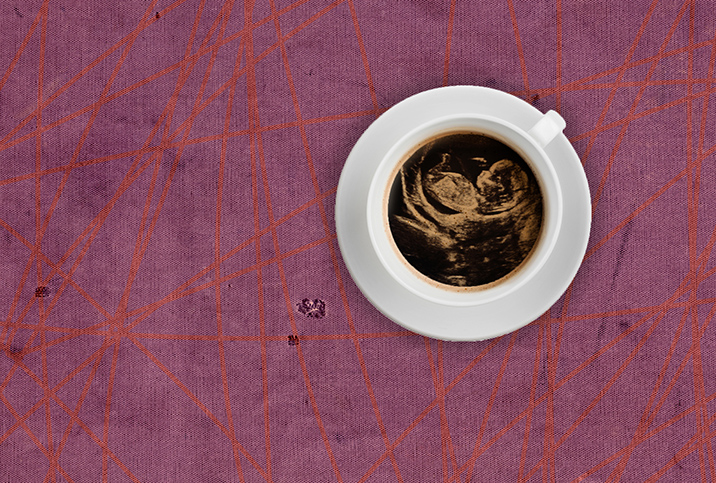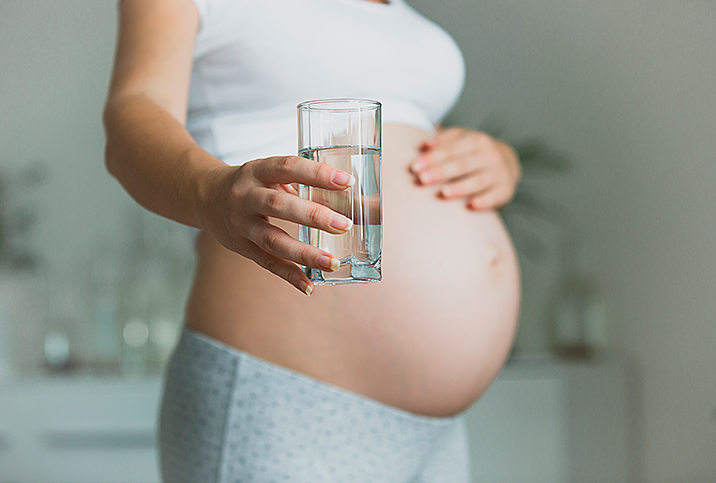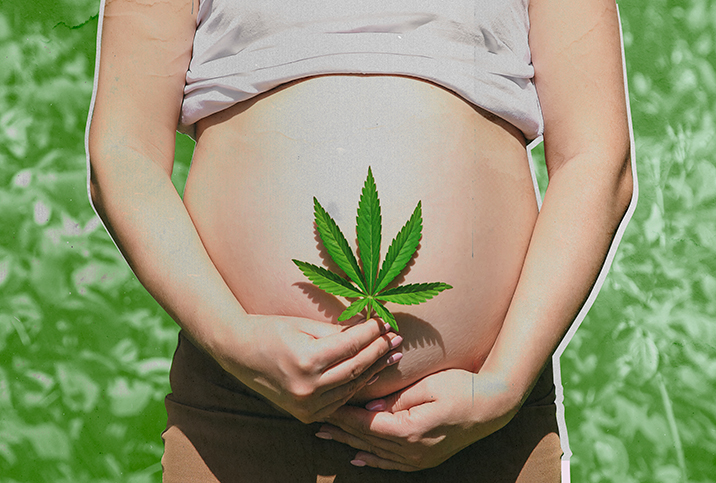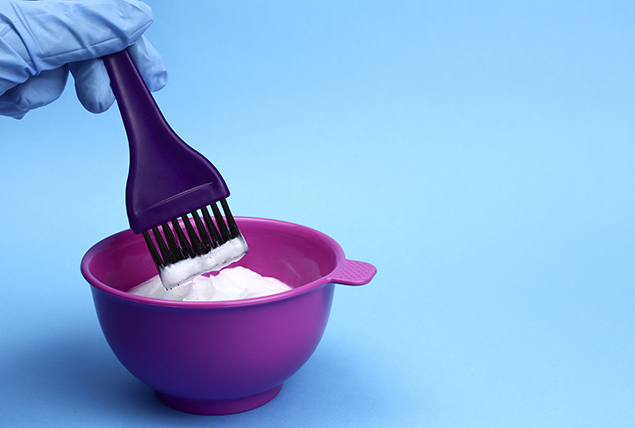Does What I Eat Affect My Baby While I'm Pregnant?
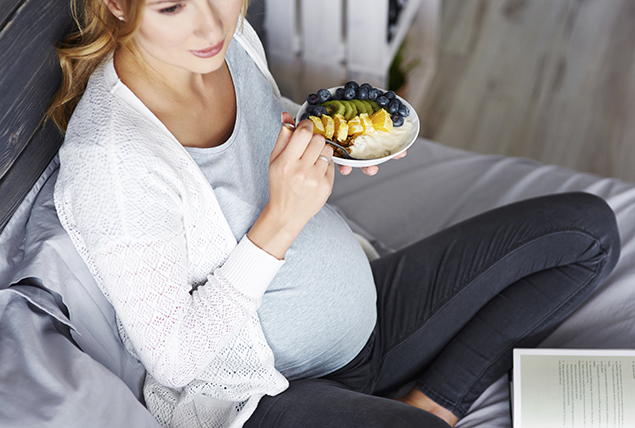
Key Points
- Nutrition is one of the most important aspects of a healthy pregnancy.
- What you eat while pregnant can influence your baby's brain development, among other factors.
- The effects of what you eat during pregnancy can impact your baby in early childhood and beyond.
One fact about pregnancy that most expectant parents know is that alcohol can profoundly inhibit a baby's neurological development. Other aspects of maternal nutrition can affect a baby's brain, too.
The occasional donut or greasy spoon brunch won't do any harm, but eating well most of the time could benefit your child now and throughout their life.
Does what you eat while pregnant affect child development?
Maternal nutrition can impact a child's neurodevelopment and potentially lead to long-term physical and mental health consequences, according to Tiffany Pham, D.O., an OB-GYN in Houston and a medical advisor at women's health app Flo.
A subpar diet can lead to malnutrition, which is associated with fetal growth restriction and premature birth, Pham said. It's associated with increased levels of cortisol, aka the stress hormone.
Some stress is unavoidable, but chronic stress can increase inflammation and blood glucose levels, according to a 2022 study. These conditions can negatively impact a child's developing brain.
A mother's malnutrition may mean a baby isn't getting enough nutrients that are crucial for healthy development, such as folic acid, iron and omega-3 fatty acids, said Monte Swarup, M.D., an OB-GYN and the founder of HPV HUB in Chandler, Arizona.
Maternal nutrient deficiencies can lead to various poor health outcomes for the child, including the following:
- Behavioral disorders, such as autism spectrum disorder (ASD), and poor social skills
- Mental health challenges such as anxiety and depression
- Attention-deficit/hyperactivity disorder (ADHD)
- Learning disabilities
What does science say about the importance of what pregnant women eat?
Various studies indicate that what a pregnant person eats can impact their baby's brain.
Researchers evaluated the maternal dietary habits and cognitive health of more than 76,000 Japanese parent-infant pairs in a 2023 study. Pregnant people in the study who didn't consume much fiber during pregnancy were more likely to have children with neurodevelopmental delays than those who ate the daily recommended amount of fiber.
The children's neurodevelopmental difficulties negatively impacted skills related to communication, socialization, motor activities and problem-solving.
Inflammation and oxidative stress caused by certain foods and beverages may underlie many of the adverse neurological effects associated with poor maternal nutrition, a 2021 study suggested. Diets high in refined carbohydrates, salt and saturated fats are most often associated with chronic inflammation and oxidative stress.
Ultra-processed foods (UPFs) that tend to contain large quantities of sugar, salt and unhealthy fats, among other potentially harmful ingredients, may be some of the worst offenders.
Pregnant people who consumed large amounts of UPFs were more likely to have children with neurodevelopmental delays that affected verbal functioning, suggested a 2022 study.
Following the Mediterranean diet (MD), a plant-forward plan that emphasizes lean proteins, fresh produce and healthy fats during pregnancy, can benefit children's cognitive, social and emotional health, a 2023 study indicated.
Researchers believe this may be because the Mediterranean diet provides various nutrients, including monounsaturated fatty acids, long-chain polyunsaturated fatty acids, antioxidants, fiber and polyphenols. These nutrients may reduce inflammation and oxidative stress while supporting a healthy pregnancy and neurodevelopment.
How many calories should a pregnant woman eat?
Eating the appropriate amount of calories is one of the most essential nutritional guidelines for pregnancy.
Most people who are pregnant with one fetus need an extra 340 calories per day starting in the second trimester, according to the American College of Obstetricians and Gynecologists (ACOG). In the third trimester, they'll need a bit more.
Your needs may differ if you started pregnancy overweight or underweight or are carrying multiple fetuses. Ask your doctor for personalized recommendations.
Recommended
- Tips for a Better Pregnancy: Eating well, exercising and maintaining a healthy sex life are just a few ways to make pregnancy symptoms more manageable.
- Avoid These Workouts During Pregnancy: Pregnant people need to stay physically active, but some exercises are off-limits.
- Can I Eat Papaya During Pregnancy?: Ripe papaya can provide health benefits for pregnant people, but unripe papaya may be unsafe.
What should a pregnancy diet plan include?
Most of your calories should come from nutrient-dense foods, according to the National Library of Medicine. You'll also want to minimize or exclude products that could be detrimental.
Foods to eat
Babies need numerous nutrients to grow and thrive, but some are particularly essential for neurodevelopment, said Meleen Chuang, M.D., clinical associate professor, Department of Obstetrics and Gynecology, Family Health Centers at NYU Langone in New York City.
These nutrients include the following:
- Berries. Fruits, especially berries, are packed with vitamin C and antioxidants that help protect the developing brain and promote healthy cell growth, Swarup said.
- Eggs. Eggs are a great source of choline, which helps memory pathways in the baby's brain, Swarup said. This "complete protein" contains all essential amino acids and many other nutrients, including folate and vitamin B12.
- Nuts and seeds. Almonds, walnuts and flaxseeds provide protein, healthy fats and essential nutrients such as omega-3 fatty acids that are vital for brain development, Swarup said.
- Leafy green vegetables. Dark leafy greens, including kale and spinach, are excellent sources of folate and folic acid and can help reduce the risk of neurodevelopmental and behavioral disorders, Pham said.
- Legumes. Lentils, chickpeas and beans are another great source of folate, as well as protein, iron, zinc, vitamin B12 and fiber, all of which support a healthy pregnancy and neurodevelopment, Pham said. As a bonus, legumes are one of the best foods to keep you from becoming constipated during pregnancy.
- Lean proteins. Animal proteins, such as eggs, chicken and turkey, and plant-based proteins, such as soy, tempeh and legumes, provide protein and iron that support brain growth and development, Swarup said.
- Greek or Icelandic yogurt. Dairy products are rich in protein and calcium and support healthy nervous system development, Swarup said. Traditional Greek and Icelandic yogurts tend to be higher in protein and lower in sugar compared to other yogurts.
- Avocados. Avocados are another great source of monounsaturated fats and folate that help with neural tube and brain development, Swarup said.
Although food is the best source of nutrition, you may want to take supplements, including prenatal vitamins, to ensure you're getting enough key nutrients, such as folic acid, B12, vitamin D, calcium, iron and zinc, Chuang said.
Supplements may be particularly important if you don't eat animal products, as it can be challenging to get enough B12 from plants and fortified cereals, breads and beverages alone.
Foods to avoid
What you don't eat is just as important for fetal and early childhood development. Consider cutting out or limiting the following foods:
- High-mercury fish. Shark, swordfish, mackerel, marlin and tuna can be high in mercury, which can harm a developing baby's brain, potentially leading to cognitive, motor skill and social difficulties.
- Raw or undercooked meat and seafood. Food safety during pregnancy is vital. Undercooked or raw meat and seafood can expose you and your baby to harmful bacteria and parasites, such as salmonella, according to Swarup. These types of infections can damage the developing nervous system.
- Unpasteurized dairy products. Pasteurization helps remove harmful bacteria, such as listeria, that can lead to listeriosis. Babies born with this condition are at higher risk of various health problems, including intellectual disabilities and paralysis, according to ACOG.
- Ultra-processed foods. Most UPFs are OK in moderation. However, some studies suggest excessive consumption of certain ingredients, such as saccharin (an artificial sweetener), can adversely affect a baby's brain development, Swarup said.
- Black licorice. Research indicates consuming black licorice during pregnancy could lead to poor health outcomes for babies, including a lower IQ and premature birth.
What to drink
Drinking enough water is never more important than it is during pregnancy.
"Staying adequately hydrated is crucial throughout pregnancy, as it supports the circulation of nutrients to the baby and the amniotic fluid surrounding them, creating a healthy environment for growth," Swarup said.
Some drinks are better options than others. If you're wondering what you can drink while pregnant, here are some good ideas:
- Water. Old-fashioned H2O is by far the best choice of drink. For added flavor and nutrients, consider infusing water with lemon, strawberry, watermelon or coconut, Chuang said. ACOG recommends drinking six to eight cups per day.
- Dairy or fortified plant milk. These products help provide the calcium and vitamin D essential for a baby's bones and nervous system Pham said.
Drinks to limit or avoid include the following:
- Alcohol. There's no known safe amount of alcohol to consume during pregnancy, and drinking could lead to short- and long-term neurodevelopmental challenges, per the Centers for Disease Control and Prevention (CDC).
- Caffeinated beverages: ACOG recommends consuming no more than 200 milligrams (mg) of caffeine—that is about two six-ounce cups of regular coffee—daily. Too much caffeine may raise the risk of miscarriage or preterm birth and impair a baby's sleep patterns, which could influence brain development, Swarup said. Black, green and white tea, chocolate and many sodas contain caffeine.
- Sugar-sweetened beverages. Soda, sports drinks and many fruit juices contain added sugar and excessive calories and fall under the ultra-processed foods category. Those foods are linked to poor health outcomes for pregnant people and developing babies.
Is it OK to diet while pregnant?
Certain dietary modifications—avoiding ultra-processed foods or sticking to healthy snacks—are encouraged during pregnancy, Chuang said.
Restrictive dieting for weight loss could endanger your baby, depriving them of essential nutrients, Swarup said. It may increase the risk of fetal growth restriction or premature delivery.
"Even in people who are severely overweight, the recommendation for weight gain in their pregnancy is usually restricted to a smaller amount, such as 11 to 20 pounds (5 to 9 kilograms), rather than recommending weight loss," Pham said.
It's similarly important not to gain too much weight. Your food preferences will likely change during pregnancy, and you may crave unusual things, some of which might not be the healthiest. Treat yourself—just don't go overboard.
"During pregnancy, it's crucial to strike a balance between gaining an appropriate amount of weight and avoiding excessive weight gain," Swarup said. "Excessive weight gain can lead to complications like gestational diabetes and high blood pressure."
These complications can hinder a baby's development, potentially leading to problems such as altered fetal growth and an increased risk of childhood obesity, heart disease, diabetes, and asthma, according to Swarup and Pham.
There's some evidence that excessive maternal adipose tissue or weight gain in pregnancy could affect a developing baby's brain, contributing to developmental problems such as learning disabilities, Pham said, referencing a 2017 study.
"Pregnant individuals should follow a balanced diet tailored to their specific nutritional needs, engage in safe and appropriate physical activity under the guidance of their healthcare provider and monitor their weight gain to ensure it aligns with recommended guidelines," Swarup said. "By doing so, they can promote a healthy pregnancy, reduce the risk of complications that may affect the baby's development and set the stage for a healthier start in life for their child."
Is my baby hungry when I'm hungry during pregnancy?
Your baby will move much more after you eat because they receive an energy surge from the nutrients in your blood supply, Chuang said. That's why obstetricians and midwives often recommend monitoring the fetal kick count after mealtimes.
"However, feeling hungry during pregnancy does not mean your baby is hungry," she said. "The baby receives nutrition through the placenta, which filters and delivers nutrients to them. Babies do not experience hunger in the same way that we do."
The bottom line
"During pregnancy, your body serves as a temple for your growing baby. Your body provides the necessary environment and nutrients for your baby's development and well-being," Chuang said. "Taking care of yourself, physically, emotionally and mentally, will help temper a safer environment for your baby."
Along with a nutritious diet, elements such as stress management, adequate sleep and avoiding secondhand smoke are all crucial for you to stay healthy while pregnant, Chuang said.
Talk with your healthcare provider to establish a personalized plan to support your and your baby's well-being.












